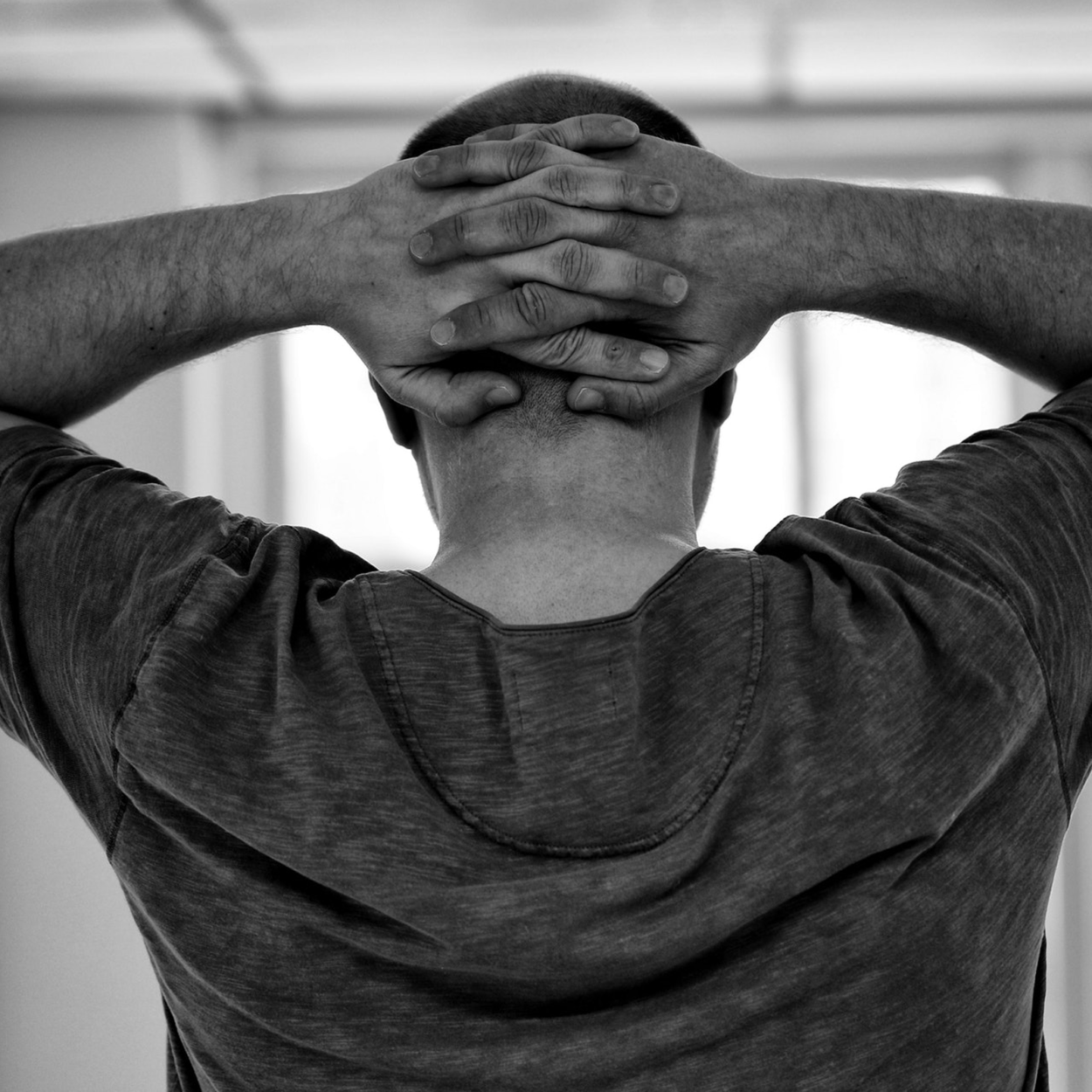Dear Colleagues,
National Stress Awareness Month 2022:
Last month World Mental Health Day took place in October when the theme was the ‘Number One’ campaign – asking everyone to make their mental health and wellbeing their number one priority.
Continuing on from that, this month we have CWU National Stress Awareness Month, building on National Stress Awareness Day 2022. With various organisations choosing different awareness days and the fact that these are not one-day issues but are on-going long-term problems, the Health Safety and Environment Department at CWU HQ continues to prioritise and spotlight mental health, wellbeing, anxiety and stress as key issues. Working with some of the key organisations and charities, we will be presenting some great resources and useful information to put to good use.
We will be highlighting the ways that stress can affect people and what you can do to manage your stress before it becomes a problem and how CWU Reps can help members. Millions around the UK experience stress and it is damaging to our health and wellbeing.
We know what it is like to feel stressed and being under pressure is a normal part of life. But becoming overwhelmed by stress can lead to depression and mental health problems or make existing problems worse. Throughout November, we will be highlighting the ways that stress can affect people and what you can do to manage your stress before it becomes a problem and how CWU Reps can focus on this crucial issue and can support members who are affected by stress or are in crisis.
Millions around the UK experience stress and it is damaging to health and wellbeing. For example, at some point in the last year, 75% of the population felt so stressed that they felt unable to cope (Mental Health Foundation).
Overview
- Most people feel stressed sometimes.
- Some stress can be helpful. Too much stress may make you ill.
- Stress affects everyone differently, but there are common signs you can look out for.
- There are many different causes of stress. Stress is not an illness itself. But it can make you unwell if it is very bad or if it lasts a long time.
- You might not be able to avoid stress but there are things you can do to manage it.
About – What is stress?
Stress is the feeling of being under too much mental or emotional pressure. When you are stressed, your body releases stress hormones such as adrenaline and cortisol.
Stress is your body’s reaction to help you deal with pressure or threats. This is sometimes called a “fight or flight” response. Your stress hormone levels usually return to normal once the pressure or threat has passed.
A small amount of stress can be useful. It can motivate you to take action and get tasks completed. It can also make you feel alive and excited. But too much stress can cause negative effects such as a change in your mood, your body and relationship issues.
Signs and causes of stress
Stress affects different people in different ways. Below is a list of some of the common signs. Some of these things will not apply to you. You may have other signs of stress that are not listed – these are common examples provided by the ‘ReThink Mental Health’ Charity.
| Physical | Mental | Behaviour |
| Headaches | Worry about future or past | Crying |
| Sweating | Imagining the worst | Eating more or less |
| Stomach problems | Being forgetful | Biting your nails |
| Muscle tension or pain | Not concentrating | Avoiding others |
| Feeling tired or dizzy | Feeling irritable | Sleep problems |
| Sexual problems | Racing thoughts | Rushing tasks |
| Fast heartbeat | Going over and over things in your mind | Drinking or smoking more |
| Dry mouth | Making mistakes | Being irritable |
| Short of breath | Feeling low | Being snappy |
What causes stress?
Almost anything that affects your daily life, work or relationships can cause stress. Even seemingly small issues can cause stress if they go on for a long time. Some people are more affected by stress than others. It can depend on factors such as your personality, upbringing, your work and home life.
Situations or events that seem positive can cause stress, such as having a baby or getting married. If you feel stressed in these situations you may struggle to understand why. You may not feel that you can talk to anyone about your feelings or struggle with guilt. But feeling stressed in these situations is very common.
Below are some examples of things than can cause stress (ReThink Mental Health).
| Situation | Event |
| Not having a job | Getting married or divorced |
| Not sleeping well | Being diagnosed with an illness |
| Money worries | Moving house |
| Work problems | Having a job interview |
| Being bullied | Someone close to you passing away |
| Problems looking after children | Being evicted from your home |
| Health issues | Leaving hospital after a long stay |
| Family or relationship problems | Going to court |
| Not having a routine | Going to a benefits assessment |
Are stress & mental illness linked? And Can mental illness cause stress?
Having a mental illness could cause stress for many reasons such as:
- Being stressed by your job and work issues,
- having to give up work because you are unwell,
- spending too much money when you are unwell and get into debt,
- having issues with welfare benefits,
- being discharged from mental health services but don’t feel ready,
- not getting on well with your doctor, care coordinator, or anyone else involved in your care,
- being worried about how long it will take you to recover from your illness,
- not knowing how to manage your symptoms, or
- being worried about side effects if you are taking medication.
Can stress cause a mental illness?
Stress is not an illness itself, but it can lead to you becoming unwell. For example, if stress lasts for a long time it can lead to anxiety and depression. Experiencing a very stressful or traumatic event could cause post-traumatic stress disorder (PTSD).
Stress can make an existing mental illness worse, such as causing a psychotic relapse.
You may use alcohol or drugs to deal with your stress. But if you do this on a regular basis you may need to seek support. Using alcohol or drugs in the short-term may help you to cope. But it may make your mental health worse in the long term.
Self-help – How can people help themselves?
There are things that people can do to help reduce the symptoms of stress. This is also known as self-care. There isn’t a set process for where you should start, or what you should do, everyone is different. You may need to try different things until you find what works for you.
Stress diary
If you don’t know what is causing your stress, it might help to keep a ‘stress diary’ for a few weeks. It may help you to identify things that you may be able to change.
You could write down when you feel stressed. You should include what happens just before or after you feel stressed.
It could also help you to identify things which can make you unwell. These things are known as ‘triggers.’ Identifying your triggers can help you to have more control over your stress levels.
Get practical advice
You may be able to take steps to change the cause of your stress. There are lots of places you can get practical advice on different issues. An advice service may be a good place to start. They may be able to support you and give advice to solve an issue. There are details of different organisations that give practical advice and ‘Useful contacts’ below.
Manage your money
Money can cause many different issues such as poverty, debt and relationship problems.
Making a budget sheet could help. This will help you work out what you can afford to pay.
If you are worried about your debts, there are places that you can get advice and support, such as StepChange, Citizens Advice and National Debtline. Their contact details can be found below.
Plan your time
If you plan your time this can make you feel more in control of things. Here are some ideas that could help you do this:
- Write lists of what you need to do,
- Prioritise the most important tasks,
- Share tasks with others if you can,
- Don’t put things off, and
- Set yourself steps and goals for complicated tasks.
Talk to someone – ‘Let’s Talk’
Telling someone how you are feeling may help with stress. It can help to ‘offload’ your worries. You may feel comfortable talking to someone you know. Or you might prefer to talk to someone who doesn’t know you. You could call an emotional support line or see a counsellor. There are some emotional support lines at the bottom of this page.
Stress risk assessment
Employers have a legal duty to protect employees from stress at work by doing a stress risk assessment and acting on it. The CWU has national agreements with all the major
employers on both individual and group stress risk assessments. Members suffering the effects of stress are encouraged to ‘talk’, approach their Union Rep, Safety Rep, Mental Health First Aider or Ambassador to seek help, support and assistance without delay should they need help at work of feel in crisis.
Make lifestyle changes
Limit your caffeine intake
Coffee, tea, energy drinks and chocolate contain caffeine. Reducing your caffeine intake could help you sleep better. Especially if you reduce it in the evening. You could have herbal tea, a warm milky drink or warm cordial instead.
Exercise
Exercise can relieve stress. It can also help you to stay healthy. There are lots of ways to exercise, and people enjoy different things. You could try cycling, walking, running, team activities or going to the gym. Doing housework or gardening is also a way to exercise.
Get enough sleep
If you’re dealing with stress you may struggle to sleep well. If you don’t get enough sleep this can cause problems such as poor concentration and low mood. Long term sleep issues can lead to mental health problems such as anxiety and depression.
If you struggle with sleep, you can try to:
- talk to your doctor,
- refer yourself for talking therapy, or
- practice sleep hygiene.
Sleep hygiene means things like:
- having a regular bedtime routine,
- only using your bed for sleep,
- exercising regularly but avoiding lots of exercise too close to bedtime,
- cutting down on caffeine, especially in the evening,
- making the place you sleep is a comfortable temperature,
- making sure the place you sleep is dark,
- not using your phone or computer immediately before bedtime, and
- making sure that the place you sleep is tidy.
Eat a balanced diet
Eating a healthy balanced diet is good for your mental and physical health.
You can get more information on exercising, sleeping and eating a balanced diet from the NHS. You can find this by following this link: www.nhs.uk/live-well/
Do something nice for yourself every day
It is important to do some things because you want to, not because you have to. This could include reading a book, watching a film or eating something you enjoy.
Online resources
There are websites which give information about how to manage your mental health. There are also websites which explain how you can use cognitive behavioural therapy (CBT) techniques to improve and manage your mental health. These can also be used for dealing with stress.
- NHS: www.nhs.uk/oneyou/every-mind-matters/
- Mood Gym: www.moodgym.anu.edu.au/welcome/new/splash;
- Mood Juice: www.moodjuice.scot.nhs.uk;
- Live life to the Full: www.llttf.com/index.php?section=page&page_seq=8&;
- Psychology Tools: www.psychologytools.com/
Practice mindfulness
Mindfulness is a type of meditation to help you to be aware of the present moment and pay attention to it. This can help to deal with symptoms of stress, depression and anxiety. You may be able to find online mindfulness courses through YouTube or apps.
Use relaxation techniques
Relaxation can help you to deal with stress and stop you from getting stressed. Some people relax using meditation, aromatherapy or yoga.
Can the doctor help?
You can speak to your GP if you are struggling to cope with stress. Struggling to cope with stress may include the following:
- You are struggling to do everyday things.
- You have stopped looking after yourself.
- You are taking more time off work.
- You have thought that life is not worth living.
- You are using drugs or alcohol to cope with how you feel.
- You have felt very low or hopeless for 2 weeks or more.
- You no longer enjoy anything.
- You are having panic attacks.
It may help you to write down a list of the main points and questions that you want to discuss with your GP. This can be helpful if you are feeling anxious or worried.
If you have kept a stress diary you could take this with you. See the previous section for more information about a ‘stress diary.’
Your GP could offer:
- self-help advice,
- stress management classes,
- talking therapy,
- medication, or
- support groups in your area.
Further reading – Books
You can find books about how to manage stress from your local library. Or you can buy books or audio books from online websites such as Ebay or Amazon. If you are not sure what books to try you could read customer reviews. This may help you to decide where to start.
Further Information, advice, guidance and support – See the following A-Z List of organisations for Stress, Anxiety and Mental Health
Alzheimer’s Society
Provides information on dementia, including factsheets and helplines.
Telephone: 0300 222 1122 (Monday to Friday, 9am to 5pm and 10am to 4pm on weekends)
Website: www.alzheimers.org.uk
Anxiety UK
Charity providing support if you have been diagnosed with an anxiety condition.
Telephone: 03444 775 774 (Monday to Friday, 9.30am to 5.30pm)
Website: www.anxietyuk.org.uk
Bipolar UK
A charity helping people living with manic depression or bipolar disorder.
Website: www.bipolaruk.org.uk
CALM
CALM is the Campaign Against Living Miserably, for men aged 15 to 35.
Telephone: 0800 58 58 58 (daily, 5pm to midnight)
Website: www.thecalmzone.net
Men’s Health Forum
24/7 stress support for men by text, chat and email.
Website: www.menshealthforum.org.uk/beatstress.uk
Cruse Bereavement Care
Telephone: 0808 808 1677 (Monday to Friday, 9am to 5pm)
Website: www.cruse.org.uk
Rape Crisis
To find your local services phone: 0808 802 9999 (daily, 12pm to 2.30pm and 7pm to 9.30pm)
Website: www.rapecrisis.org.uk
Mental Health UK
They provide information on managing work related stress. You can find this by following the link: www.mentalhealth-uk.org/best-working-life/
Mental Health Foundation
Provides information and support for anyone with mental health problems or learning disabilities.
Website: www.mentalhealth.org.uk
Mind
Promotes the views and needs of people with mental health problems.
Telephone: 0300 123 3393 (Monday to Friday, 9am to 6pm)
Website: www.mind.org.uk
No Panic
Voluntary charity offering support for sufferers of panic attacks and obsessive compulsive disorder (OCD). Offers a course to help overcome your phobia or OCD.
Telephone: 0844 967 4848 (daily, 10am to 10pm). Calls cost 5p per minute plus your phone provider’s Access Charge
Website: www.nopanic.org.uk
OCD Action
Support for people with OCD. Includes information on treatment and online resources.
Telephone: 0845 390 6232 (Monday to Friday, 9.30am to 5pm). Calls cost 5p per minute plus your phone provider’s Access Charge
Website: www.ocdaction.org.uk
OCD UK
A charity run by people with OCD, for people with OCD. Includes facts, news and treatments.
Telephone: 0333 212 7890 (Monday to Friday, 9am to 5pm)
Website: www.ocduk.org
PAPYRUS
Young suicide prevention society.
Telephone: HOPElineUK 0800 068 4141 (9am to midnight, every day of the year)
Website: www.papyrus-uk.org
Refuge
Advice on dealing with domestic violence.
Telephone: 0808 2000 247 (24-hour helpline)
Website: www.refuge.org.uk
Relate
They are a charity who provide relationship counselling. They can provide counselling over the phone, live chat, webcam or face to face. You have to pay a fee to use Relate. If you want to contact them with a general enquiry or book an appointment, you will have to find your nearest Relate and give them a call through their website.
Website: www.relate.org.uk
Rethink Mental Illness
Support and advice for people living with mental illness.
Telephone: 0300 5000 927 (Monday to Friday, 9.30am to 4pm)
Website: www.rethink.org
Samaritans
Available 24 hours a day. They provide confidential support for people in emotional distress or despair. They offer a non-judgemental service and can be contacted by telephone, letter and e-mail. There’s also a face-to-face service available at their local branches.
Telephone: 116 123
Email: jo@samaritans.org
Website: www.samaritans.org/
SANE
UK mental health charity aiming to improve the quality of life of anyone affected by mental illness. Emotional support, information and guidance for people affected by mental illness, their families and carers.
Telephone: 0300 304 7000. 4:30pm -10:30pm everyday
Email: through the website
Website: www.sane.org.uk
Textcare: comfort and care via text message, sent when the person needs it most: www.sane.org.uk/textcare
Peer support forum: www.sane.org.uk/supportforum
Support Line
Offers help to people on any issue. They provide non-judgemental, confidential support and advice to help you to find ways of coping with a particular problem. They can also be contacted by post and email. Helpline opening hours vary.
Telephone: 01708 765200
Email: info@supportline.org.uk
Website: www.supportline.org.uk
YoungMinds
Information on child and adolescent mental health. Services for parents and professionals.
Telephone: Parents’ helpline 0808 802 5544 (Monday to Friday, 9.30am to 4pm)
Website: www.youngminds.org.uk/
Abuse (child, sexual, domestic violence)
Wellness Recovery Action Plan (WRAP) Plus. (Formerly living without Depression and Manic Depression)
The Wellness Recovery Action Plan® or WRAP® is a self-designed wellness process. You can use a WRAP to get well, stay well and make your life your own. It was developed in 1997 by a group of people who were searching for ways to overcome their own mental health issues and move on to fulfilling their life dreams and goals.
Website: www.mentalhealthrecovery.com
Alcohol misuse
Alcoholics Anonymous
A free self-help group. Its ‘12 step’ programme involves getting sober with the help of regular face-to-face and online support groups.
Telephone: 0800 917 7650 (24-hour helpline)
Website: www.alcoholics-anonymous.org.uk
Al-Anon
Al-Anon is a free self-help ‘12 step’ group for anyone whose life is or has been affected by someone else’s drinking.
Telephone: 0800 0086 811 (daily, 10am to 10pm)
Website: www.al-anonuk.org.uk
Drinkline
A free confidential helpline for people worried about their own or someone else’s drinking.
Telephone: 0300 123 1110 (weekdays 9am to 8pm, weekends 11am to 4pm)
National Association for Children of Alcoholics
Providing information, advice and support for everyone affected by a parent’s drinking.
Free Helpline: 0800 358 3456
Email: helpline@Nacoa.org.uk
Website: https://nacoa.org.uk/
SMART Recovery UK
SMART Recovery UK face-to-face and online groups help people decide whether they have a problem with alcohol and drugs, build up their motivation to change, and offer a set of proven tools and techniques to support recovery.
Telephone: 0330 053 6022 for general enquiries about SMART Recovery UK (9am to 5pm, Monday-Friday)
Website: smartrecovery.org.uk
Debt
National Debtline
Provides free, independent and confidential advice about debt. You can contact them over the telephone, by e-mail or letter.
Telephone: 0808 808 4000. Monday to Friday 9am to 8pm and Saturday 9.30am to 1pm
Address: Tricorn House, 51-53 Hagley Rd, Birmingham B16 8TP
Webchat: through the website
Website: www.nationaldebtline.org
StepChange
Provides free, confidential advice and support to anyone worried about debt. You can contact them over the telephone or online.
Telephone: 0800 138 1111. Monday to Friday 8am to 8pm and Saturday 8am to 4pm
Address: Wade House, Merrion Centre, Leeds, LS2 8NG
Webchat: through the website. Monday to Friday 8am to 8pm and Saturday 9am to 2pm
Email: through the website
Website: www.stepchange.org
General
Citizens Advice
Offers free, confidential, impartial and independent advice. They advise on benefits, housing, debt and other issues face-to-face or over the phone or webchat. Most areas of the country have a local Citizens Advice service. Search on their website for your local service.
Telephone England: 03444 111 444
Telephone Wales: 03444 77 20 20
Website: www.citizensadvice.org.uk
Attachments:
- Work Stress Handbook – (UK National Work Stress Network)
- Stress How To Cope Guide – (ReThink Mental Health)
- Taking To Someone Who May Be Suicidal Guide (Zero Suicide Alliance)
Yours sincerely
Dave Joyce
National Health, Safety & Environment Officer
22LTB443 National Stress Awareness Month 2022
Workstress Handbook – UK National WorkStress Network
stress-how-to-cope-rethink-mental-health-guide-booklet
Zero-Suicide-Alliance-Booklet-talking-to-someone-who-might-be-suicidal




